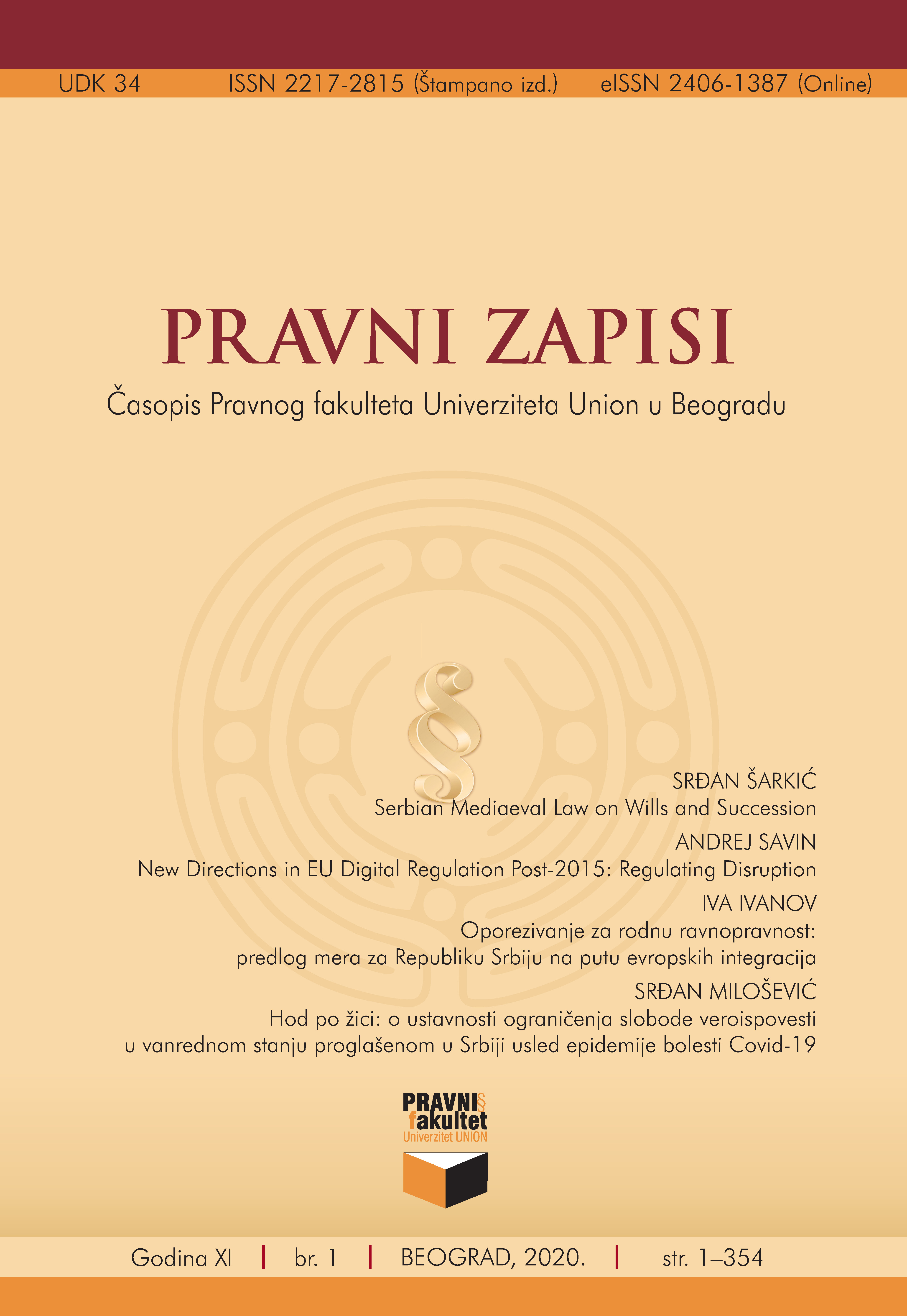Hod po žici: o ustavnosti ograničenja slobode veroispovesti u vanrednom stanju proglašenom u Srbiji usled epidemije bolesti Covid-19
Walking a Tightrope: On the Constitutionality of Limiting Freedom of Worship Under the State of Emergency Declared in the Republic of Serbia Caused by the Epidemic of Covid-19
Author(s): Srđan MiloševićSubject(s): Law, Constitution, Jurisprudence, Constitutional Law
Published by: Pravni fakultet Univerziteta Union
Keywords: secularity; secularism; religious freedom; limitation of freedom; Constitution of the Republic of Serbia; epidemics of Covid-19; holy communion
Summary/Abstract: This paper offers an answer to the following question: is the government authorized to intervene into the field of the religious freedom during the state of emergency, declared under the pressure of the ongoing epidemics, given the fact that the particular religious ritual – the holy communion – presupposes an epidemiologically risky practice. The main controversy stems from the conflicting positions taken by the religious dogma and scientific evidence: theology explicitly posits that the ritual of the holy communion cannot be considered risky behavior, even though practiced by using the very same object being put into the oral cavity (cavitas oris) of all participants of the ritual. A scientific approach contradicts this. At first sight, another controversial issue is the constitutional one: the 2006 Serbian Constitution explicitly guarantees non-derogability of religious freedom during the state of emergency, although the Constitution itself in Article 43 does not envisage freedom of religion as an absolute right. In this paper, I have argued that the state not only has been authorized but has been obliged to forbid (at least in ultima linea), the dangerous religious practices. The fact that the Constitution guarantees religious freedom during the state of emergency, poses no obstacles to state intervention because the right to religious freedom, guaranteed in Article 43, provides the legitimate reasons for the limitation of this right, including the limitation of public health protection. The limitations are restricted to the numerus clauses of the legitimate reasons, meaning that a religious freedom cannot be limited for any other reason, but the one among the precisely mentioned in the Constitution. This kind of constitutional interpretation also eliminates an insurmountable and unacceptable inconsistency among the constitutional provisions as well as the inconsistent interpretation that the same right might be limited under the normal circumstances, but cannot be limited during the state of emergency.
Journal: Pravni zapisi
- Issue Year: 2020
- Issue No: 1
- Page Range: 173-203
- Page Count: 31
- Language: Serbian

